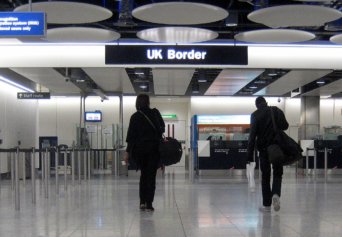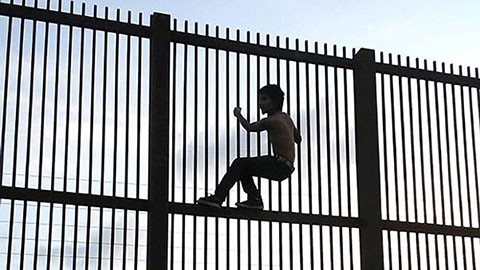- About
- Topics
- Picks
- Audio
- Story
- In-Depth
- Opinion
- News
- Donate
- Signup for our newsletterOur Editors' Best Picks.Send
Read, Debate: Engage.
| topic: | Refugees and Asylum |
|---|---|
| located: | United Kingdom, China, Belgium |
| editor: | Gurmeet Singh |
Borders kill. This is what borders are designed to do. They are like old city walls that prevent intruders from getting in without serious risk of injury or death. So when people die trying to illegally cross a border, tragic though it may be in human terms, it is simply the border doing what the border does.
Last week, 39 people were found dead in a lorry in Essex. Eight women and 31 men, all identified as Chinese nationals, tried to illegally get into the U.K. via the EU. As the Guardian writes:
“The 39 people who were found dead in a refrigerated lorry trailer in Essex on Wednesday were already trapped when they arrived at the Belgian coast en route to England, local officials have said, as police confirmed that the victims were all Chinese nationals.
The Belgian officials said the eight women and 31 men would have been locked in the trailer at temperatures as low as -25C for at least 10 hours after the trailer arrived at the port of Zeebrugge on Tuesday afternoon.”
The suspicion is this was a case of trafficking.
These were 39 real people with real lives, 39 people with relationships and feelings. For whatever reason they tried to come into the U.K. for, they were forced to take extreme measures because the border and immigration policies of the U.K. and the EU (outside of Europe) are so extreme. And the more difficult it is to enter a country, the more extreme the measures people are willing to take to enter the country. And of course, the more profitable trafficking becomes.
These were 39 real people killed by a border.
Sympathy for them has been low in the U.K. Of course, in a country with a mainstream press dominated by right-wing and conservative voices, the deaths were treated as “tragic” but also as a warning: ‘what if the 39 people entering the country belonged to ISIS?’ Such double-standards enable people to express the ‘right’ emotion in response to an event, but then act on a different emotion. They can express sympathy, but then act on fear and hatred. Indeed, after the deaths of these people, the press has clamoured for even stricter border controls; as though these controls will prevent future tragedies.
Dr. Henrik Lebuhn is an academic at the Humboldt University of Berlin who has argued that borders are not simply at a nation’s edges, but operate in flexible and movable ways he calls “border regimes”. So, for example, when the police stop a person and ask for identification inside the country, that is a form of border control. When a person tries to register their home as an official place of residence, that too is a border control, and so on. So getting into a country is only the first challenge in a series of lifelong border controls.
And by making life more difficult for people will only lead to people taking more and more risks on an everyday level. Controlling borders in such a harsh way doesn’t stop people trying to enter the country; it makes them more daring.

